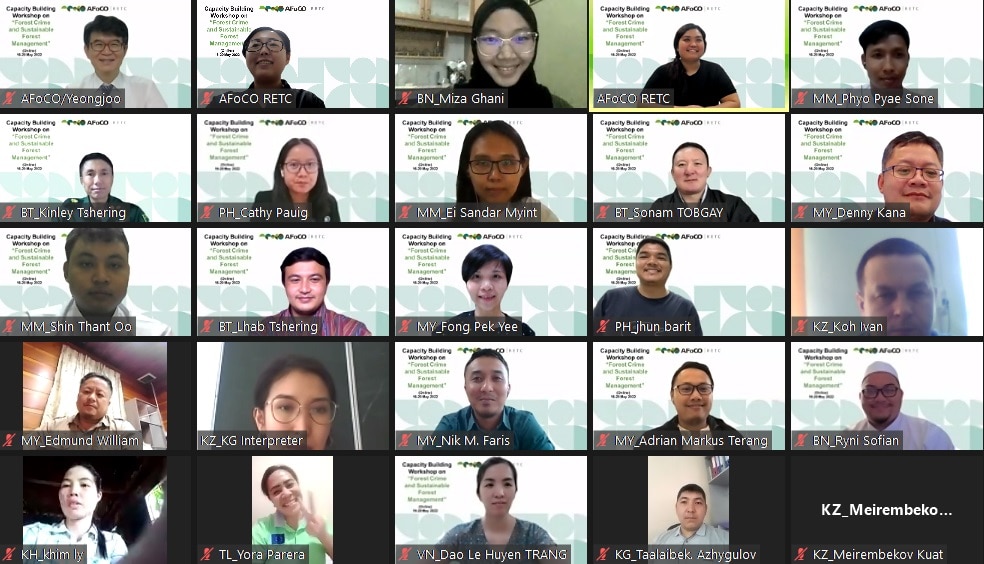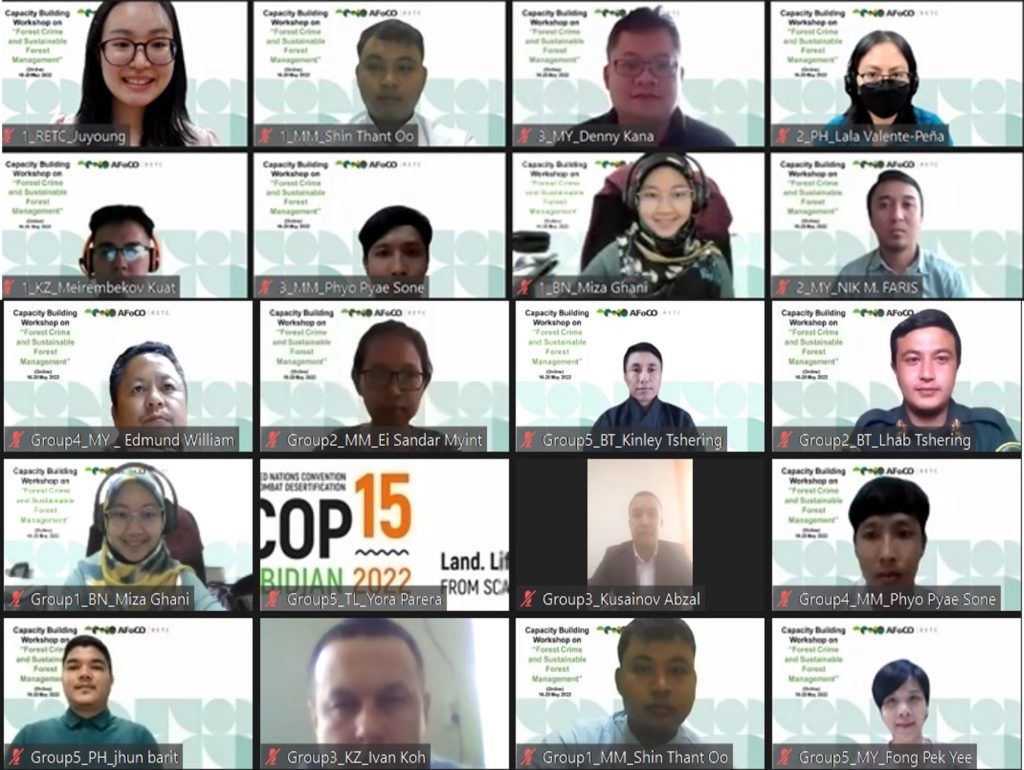Forest crime implies a broad range of processes of “taking, trading, importing, exporting, processing, possessing, obtaining and consuming wild flora, including timber and other forest products, in contravention of national or international law” as defined by the United Nations Office on Drugs and Crime (UNODC). Illegal logging and related trades are not only considered major forest crimes. Rather, it can be argued that illegal logging directly impacts deforestation, climate change, and species extinction and has a long-term negative impact on the livelihoods of forest-dependent people.
To provide a broader understanding of the impact of forest crime on forests and global and regional efforts in maintaining the world’s forests, the Capacity Building Workshop of AFoCO RETC on “Forest Crime and Sustainable Forest Management” was organized online from 16th to 20th May 2022. The training welcomed 26 participants from 10 AFoCO member countries (Bhutan, Brunei Darussalam, Cambodia, Kazakhstan, Kyrgyzstan, Malaysia, Myanmar, Philippines, Timor-Leste, and Viet Nam). The workshop’s objectives are to improve understanding of significant drivers of forest crime and its socio-environmental impacts and to share knowledge and experiences in combating forest crime in AFoCO Member Countries.
“Illegal logging directly impacts deforestation, climate change, and species extinction and has a long-term negative impact on the livelihoods of forest-dependent people. We must understand that when we look down on forest crime issues, it could interfere with the global society’s will and justice for fair trade in the end,” said by Dr Lee Yeong Joo during his opening remarks.
The workshop included four sessions led by the experts from UNODC, Center for International Forestry Research and World Agroforestry (CIFOR-ICRAF), ASEAN Center for Biodiversity (ACB), and World Wildlife Fund (WWF);
- Global and Regional Efforts in Combating Forest Crime – Mr.Giovanni Broussard, Regional Coordinator for Southeast Asia and the Pacific, Environment Team, UNODC
- Forest Crime and Climate Change Mitigation and Adaptation – Mr. Ahmad Dermawan, Scientist, CIFOR-ICRAF
- Transboundary Collaboration in Combating Forest Crime – Dr. Arvin C. Diesmos, Director, Biodiversity Information Management, ACB
- Demand reduction strategies in combating forest crime – Ms. Natasha Han, Forest Intelligence Coordinator, WWF Greater Mekong
This workshop was designed to create an environment that enabled both teaching and learning among participants. Participants were assigned to work in small groups to share opinions and experiences and contribute to the development of “Regional Problem Tree” and “Regional Objective” based on their country reports. They were also tasked to identify and formulate key recommendations to enhance regional efforts in combating forest crime. Participants from each country presented their own country reports and action plans and interventions were made during their presentations.
On the last day of the workshop, an online survey assessment to gather opinions from the participants, and the following recommendations on topics to include in future capacity building workshops were consolidated:
- Application of modern technology for monitoring forest crime
- Investigation techniques for money laundering in forest crime
- Experiences and success stories on controlling forest crime using technological assistance
- Strategy to eliminate illegal logging activity and transboundary forest crime such as inter-state intelligence, preventions, cooperations at national borders.
- Role of forest certification in combating forest crime
- Combating environmental organized crimes and investigation


Contributed by Khin Nyein San, Fellowship Official from Myanmar & Yang Ju Young, Intern Student

